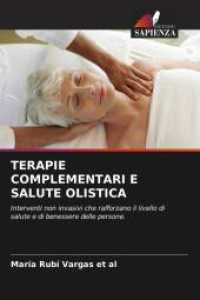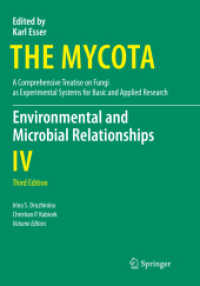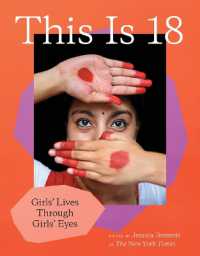基本説明
Shows how to use a wide range of genres to promote critical literacy skills in grades 4-6.
Full Description
Upper-elementary students encounter a sometimes dizzying array of traditional and nontraditional texts both in and outside of the classroom. This practical handbook helps teachers in grades 4-6 harness the instructional potential of fiction, poetry, and plays; informational texts; graphic novels; digital storytelling; Web-based and multimodal texts; hip-hop; advertisements; math problems; and many other types of texts. Twenty-four complete lessons promote critical literacy skills such as comprehending, analyzing, and synthesizing information and using writing to communicate new ideas and pose questions. Snapshots of diverse classrooms are accompanied by clear explanations of the research base for instruction in each genre. Ready-to-use reproducibles are included.
Contents
1. Introduction, Barbara Moss and Diane Lapp
I. Teaching the Genres: What Students Often Encounter
2. Transforming Traditional Tales to Improve Comprehension and Composition, Terrell A. Young, Laura Tuiaea, and Barbara A. Ward
3. Every Story Has a Problem: How to Improve Student Narrative Writing in Grades 4-6, Sue Dymock and Tom Nicholson
4. Teaching Poetry, Claudia Dybdahl
5. Using Readers' Theater to Engage Students with Drama, Regina M. Rees
6. Teaching Journalistic Style: A Newspaper Genre Study, Nancy Frey and Douglas Fisher
7. Using Procedural Texts and Documents to Develop Functional Literacy with Students: The Key to Their Future in a World of Words, Martha D. Collins and Amy B. Horton
8. Going Beyond Opinion: Teaching Children to Write Persuasively, Dana L. Grisham, Cheryl Wozniak, and Thomas DeVere Wolsey
9. Reading Biography: Evaluating Information across Texts, Barbara Moss and Diane Lapp
II. Teaching Other Genres: What Students Could Also Encounter
10. Using Comic Literature with Older Students, Chris Wilson
11. Using Primary-Source Documents and Digital Storytelling as a Catalyst for Writing Historical Fiction in the Fourth Grade, Carol J. Fuhler
12. No Stripping Allowed: Reading and Writing Political Cartoons, James Bucky Carter with Kelly Lynn Carter
13. Self-Expressing through Hip-Hop as Culturally Responsive Pedagogy, Nadjwa E. L. Norton
14. Exploring High-Stakes Tests as a Genre, Charles Fuhrken and Nancy Roser
15. Reading a Science Experiment: Deciphering the Language of Scientists, Maria Grant
16. Reading + Mathematics = SUCCESS: Using Literacy Strategies to Enhance Problem-Solving Skills, Mary Lou DiPillo
17. Promoting Literacy through Visual Aids: Teaching Students to Read Graphs, Maps, Charts, and Tables, Paola Pilonieta, Karen Wood, and D. Bruce Taylor
18. Critically Reading Advertisements: Examining Visual Images and Persuasive Language, Lori Czop Assaf and Alina Adonyi
19. Reading Web-Based Electronic Texts: Using Think-Alouds to Help Students Begin to Understand the Process, Christine A. McKeon
20. Developing Critical Literacy: Comparatively Reading Multiple Text Sources in a Sixth-Grade Classroom, Jesse Gainer
III. Crafting the Genre: Sharing One's Voice through Writing
21. Using Written Response for Reading Comprehension of Literary Text, Evangeline Newton, Ruth Oswald, and Todd Oswald
22. Reading Persuasive Texts, Thomas DeVere Wolsey, Cheryl Pham, and Dana L. Grisham
23. Writing a Biography: Creating Powerful Insights into History and Personal Lives, Dorothy Leal
24. Monumental Ideas for Teaching Report Writing through a Visit to Washington, DC, Susan K. Leone
25. Writing Summaries of Expository Text Using the Magnet Summary Strategy, Laurie Elish-Piper and Susan R. Hinrichs
26. Conclusion: Looking Back, Looking Forward, Diane Lapp and Barbara Moss








